When my mother visited us in December, I realized (again, again) how much more there was to see than I had been seeing. She walks looking down because of chronic vertigo that is worse if she looks around as she walks. I must have assumed there wasn’t much to see down on the ground because I was worried she “wouldn’t see anything”—but then she started asking me to take pictures of all the different grates, grilles, iron utility and manhole covers, so she could remember her time in Dublin. So yes, once again I was confronted with the fact that there is nothing beneath notice, not to mention that there are as many ways of seeing and experiencing the world as there are people. The past few weeks, I have been trying not only to see but to really look at and record the things at my feet.
Project take-nothing-for-granted continues to encompass more and more of the world, revealing as it does more and more of the complexity of places I feel I already know, even know past exhaustion. Is there really anything left to see here? To care about? To be surprised by? I realized recently that I am tired of the places I’ve spent the past 18 months walking. They have begun to feel spent. I’m used to them. I can predict the patterns of garbage and the timings of flowers. Wrong again? Oh ho ho ho ho the world says. Look more closely. Have you seen this yet? You might be surprised at what you’ve missed.
I’m not making it up; it’s true that there is always more to see, care about, be interested in, even if I don’t feel like it (not infrequently the case; feeling like it takes a lot of energy). Also, I didn’t come to this on my own. I’ll cite one source, though there are many (some here): Georges Perec’s An Attempt at Exhausting a Place in Paris, which I read in Mark Lowenthal’s English translation in 2019 (order a copy here with free US shipping; Wikipedia article here; Archive.org copy available to borrow here; on WorldCat at a library near you? find out here). In this book, for a hundred pages or so, a man sits at the same café on the same corner for three days, and the same things happen—pedestrians, shopkeepers, buses, pigeons. I found it absolutely delightful. A model for writing and artmaking, and most of all a model for being alive.
Paris is Paris, and Dublin is Dublin. Would I get used to Paris? Well I got used to other beautiful places, so I am guessing I would. Work, commuting, the ordinary activities of daily life like groceries and cleaning—they happen, and happen to tire me out, wherever I am. Sometimes I just don’t want to be walking eastward along the Grand Canal on yet another morning. Over time maybe even the Place St-Sulpice might seem worn-in. Then what? Good to sit at a café and watch all the buses pass by. Good to walk through the Liberties, down Meath Street, past the butcher again, take a look at the pork kidneys, take a look at the mackerel, silver in their stainless steel containers in the window. In Leopold Bloom’s city as in Perec’s, a lot of nothing happens and the repetition of all that nothing turns out to be beautiful, weird, funny, interesting. One stitch at a time.
What else is there to say? Our ordinary lives are all we have.
Necessary Fiction has a newsletter now and it is like getting a magazine you will actually enjoy, once a week. Timothy Otte reviews Seriously Well by Helge Torvund (translated by the author); I’d read a review like this every week.
A woman I followed on Twitter since the very earliest days died this week. Her name was Shafiqah Hudson, and she made the hashtag #yourslipisshowing and did so much work around misinformation online. I can’t believe she has died. You can read about her in context here and here. I’m not sure what to do with this kind of loss—someone I didn’t know but whom I read for many years—but her work mattered to me and I know it mattered to many others. And now you know her name too.
We can send UNRWA some money here for the ordinary lives of people in Gaza.
Thank you for reading—see you next week.




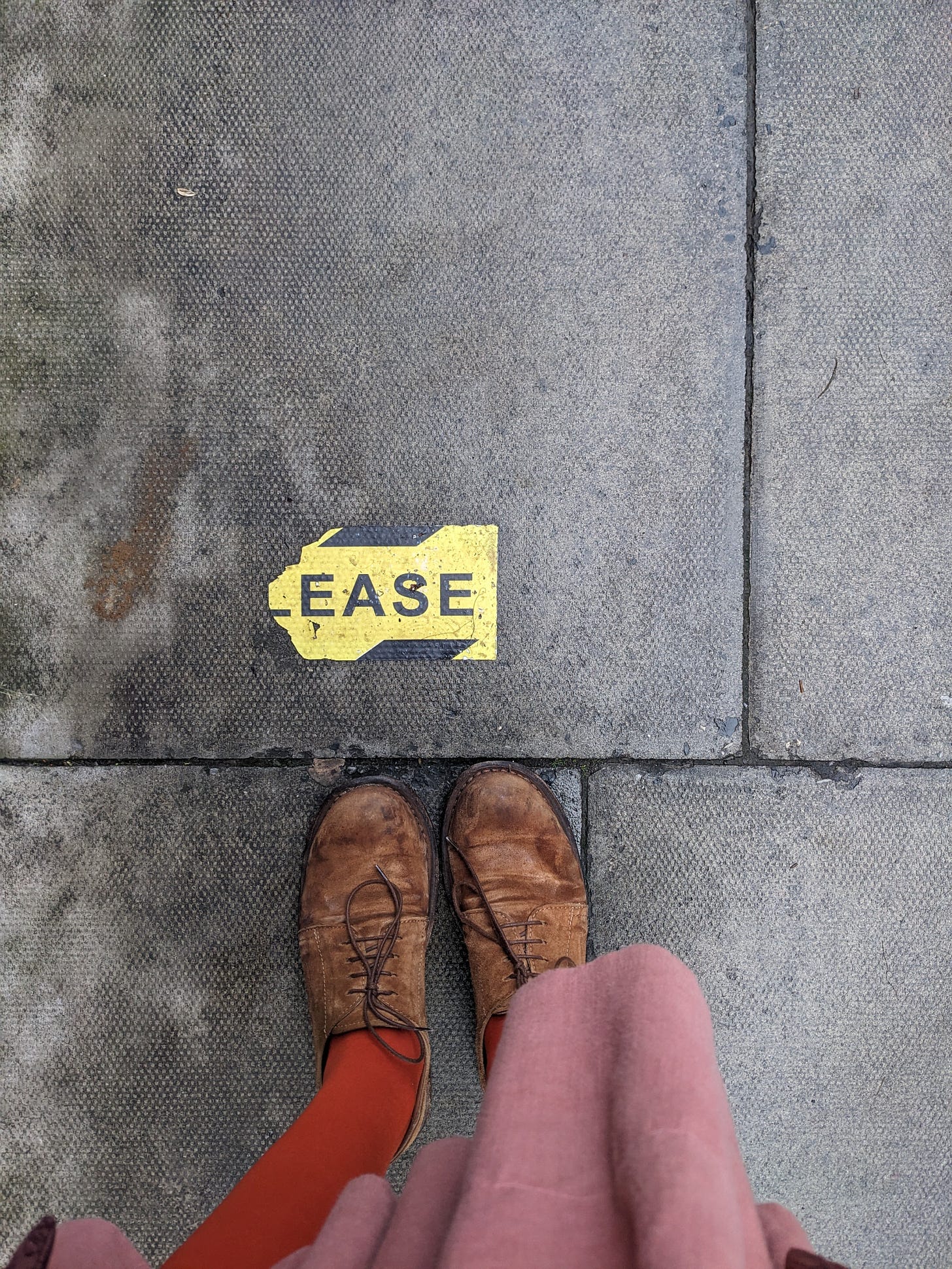
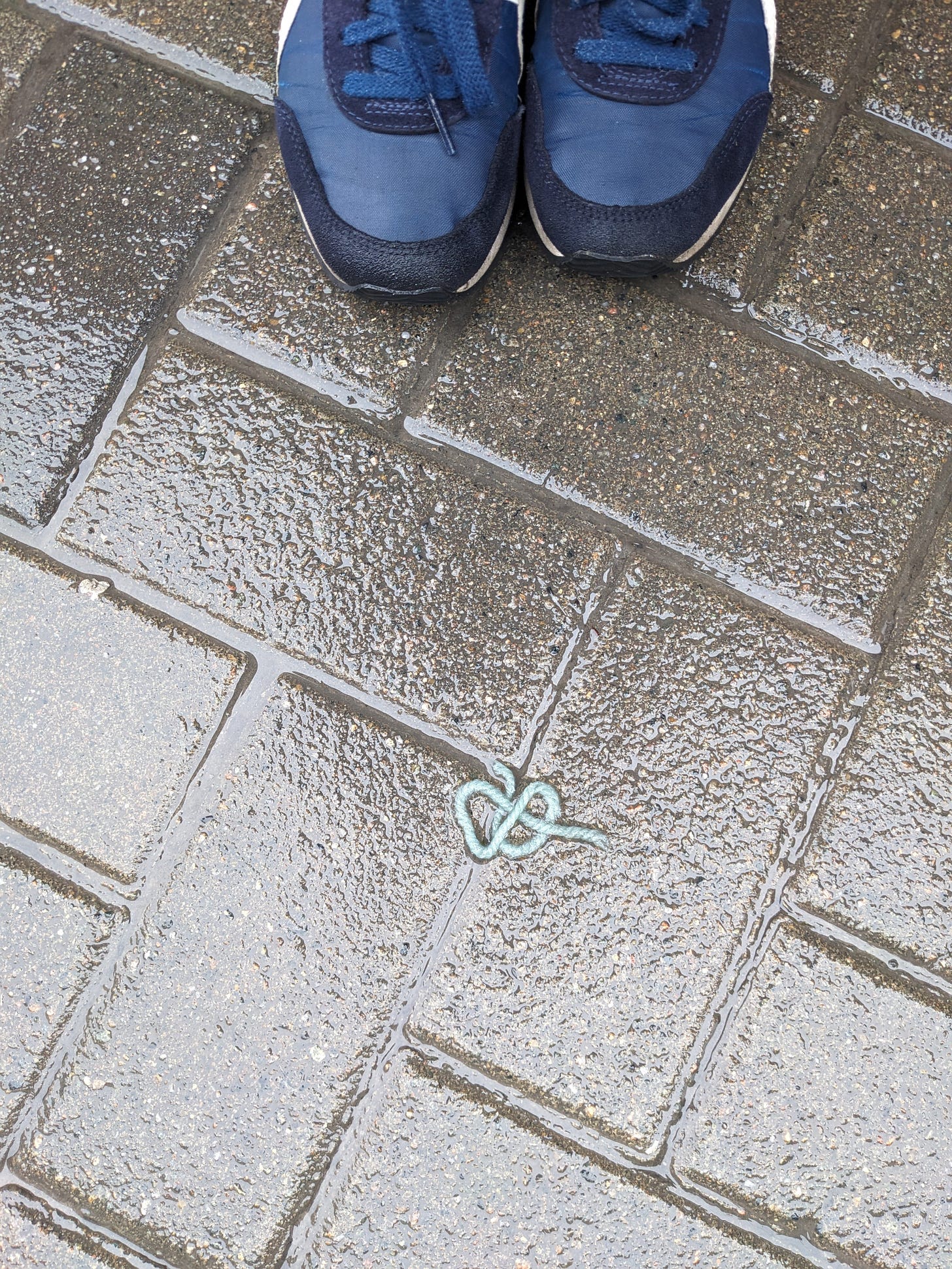
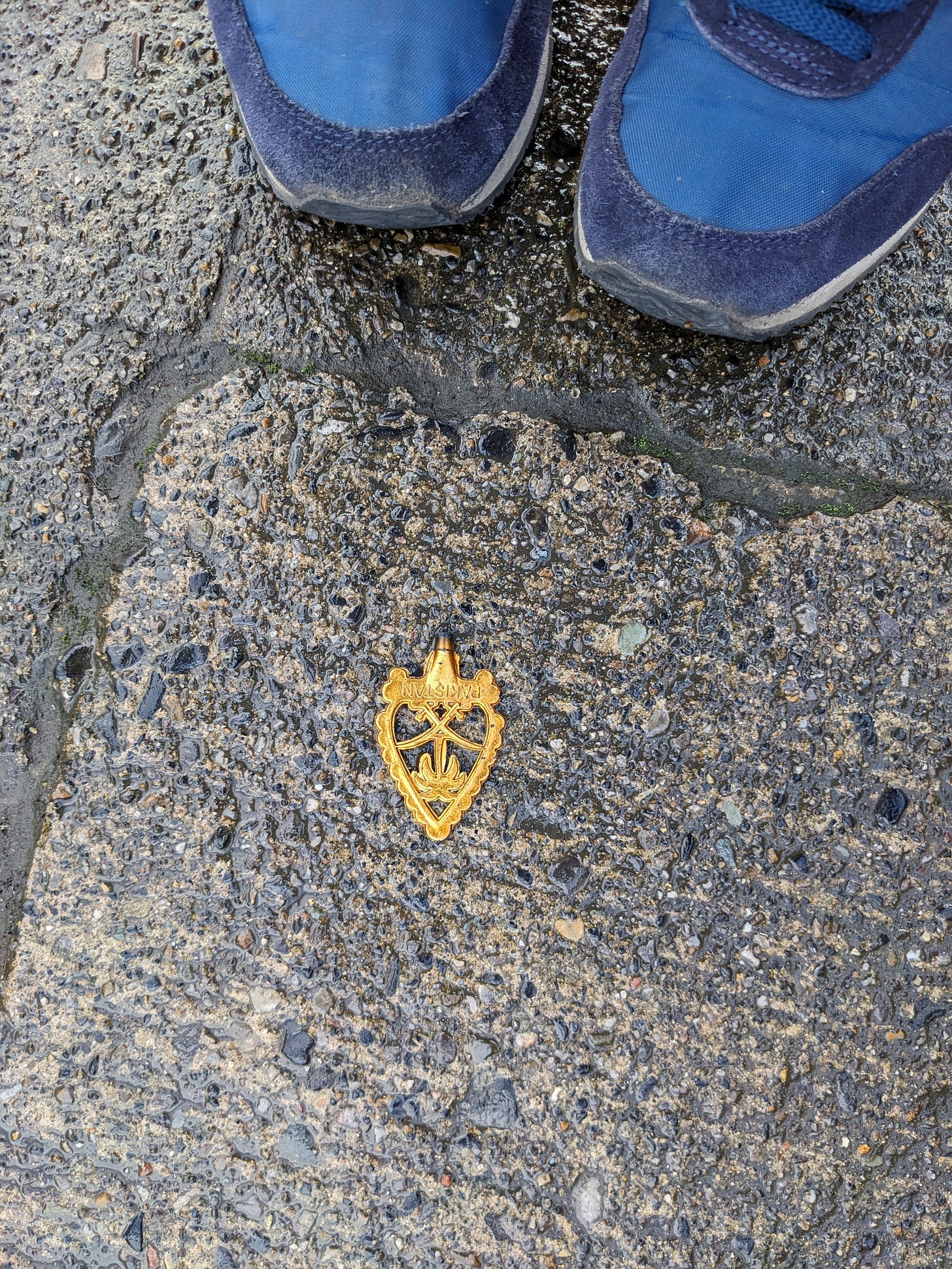
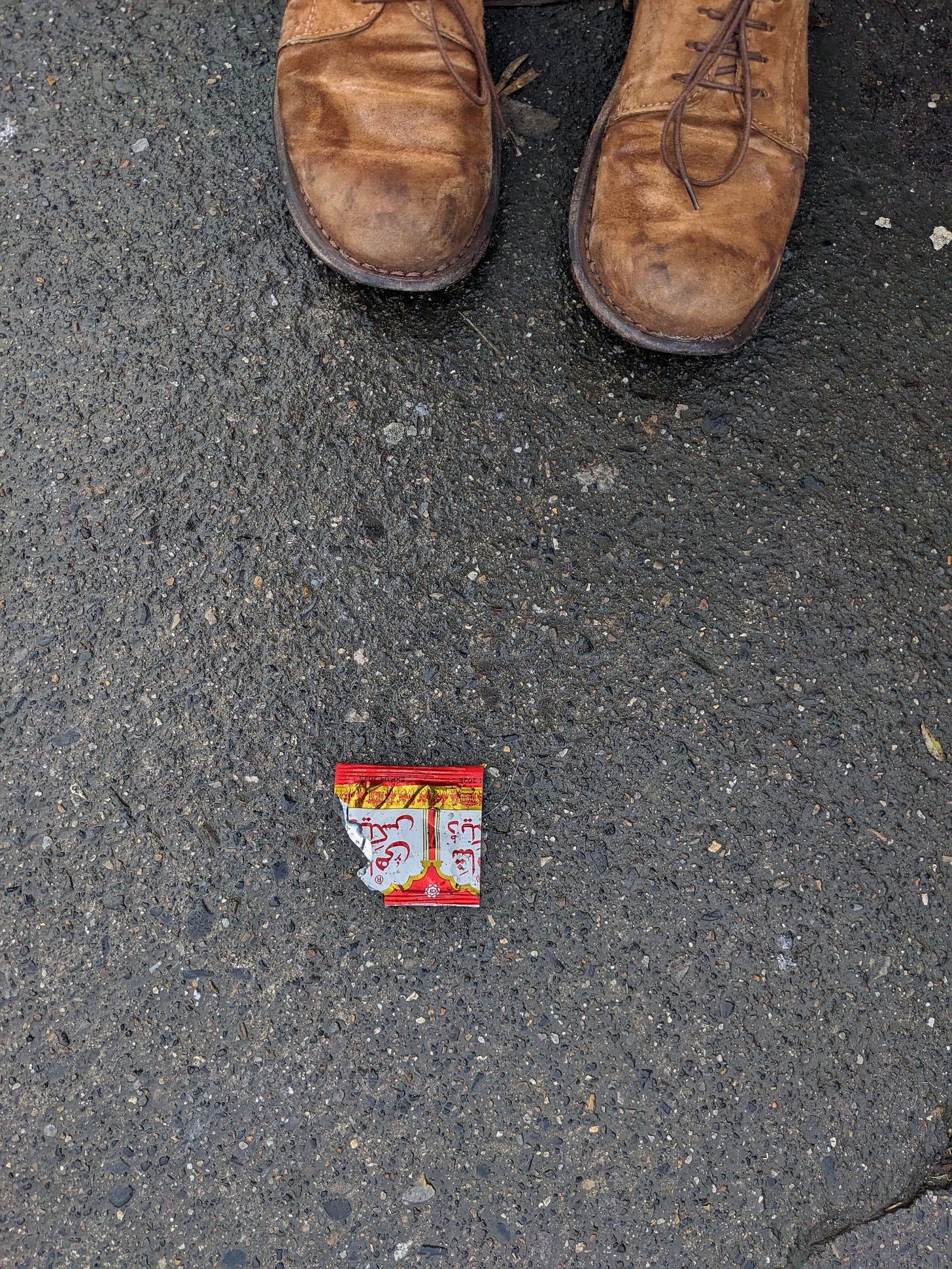
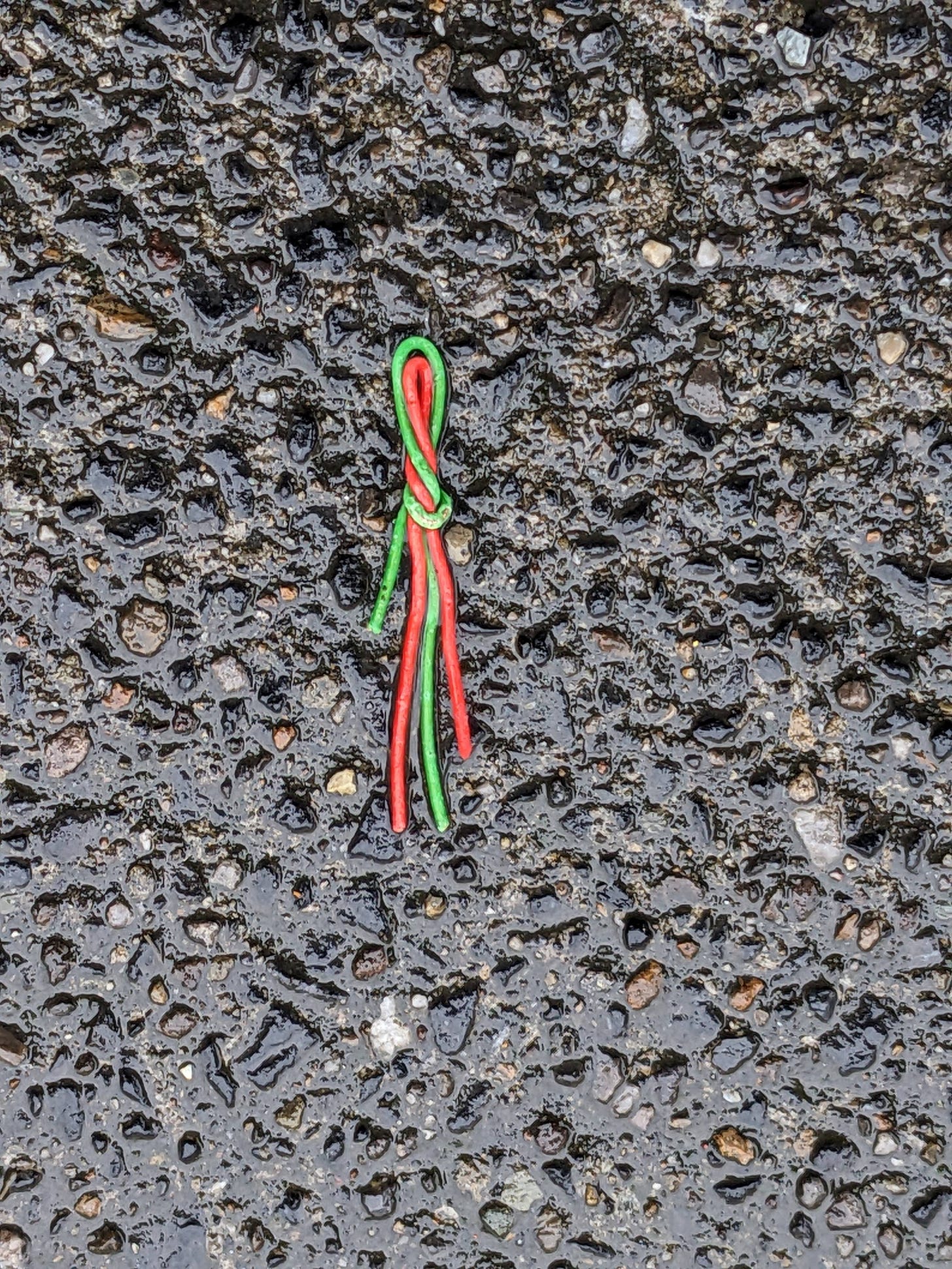
Looking down reminds me of: Emma-France Raff…http://www.emmafrance.de/work/raubdruckerin
“I’m not sure what to do with this kind of loss—someone I didn’t know but whom I read for many years—but her work mattered to me” That last phrase captures so much. I’m sorry for your loss Éireann.